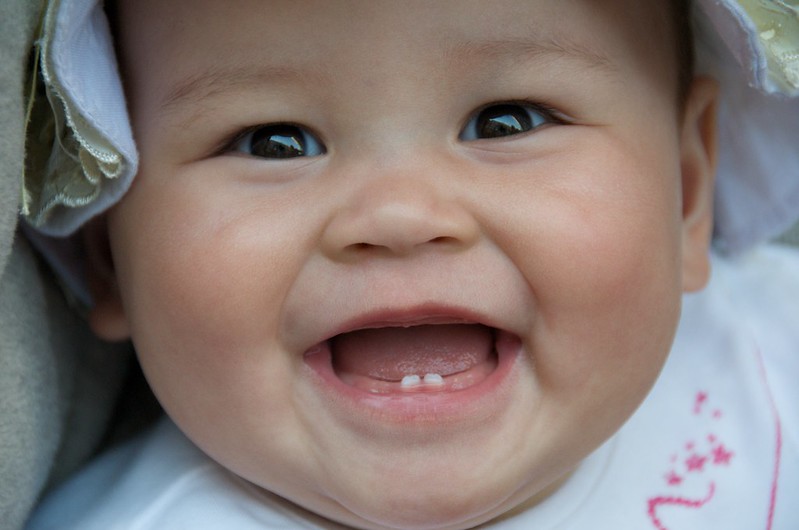The appearance of the first tooth or baby teeth is an important stage in the process of baby growth. When the first tooth appears, the baby will feel uncomfortable, and fussy, and often cry for no apparent reason.
The time of appearance of the baby’s first teeth can vary. However, milk teeth usually appear for the first time when the baby is 6-8 months old. The growth of milk teeth generally lasts until the age of 3 years. At that age, usually 20 milk teeth are complete.
Signs of Baby Teeth Emergence in Children
The process of growing a baby’s first tooth is known as teething syndrome. When baby teeth start to grow, babies will show some signs that usually last about 8 days. Signs of a baby’s first tooth appearing include:
1. The urge to bite
In this phase, babies always want to bite things around them. This happens because the baby feels pain in his gums. He needs something to bite to ease the pain.
2. Difficulty eating
The growth of baby teeth will cause the gums to tear until it hurts, and consuming food will make the teeth and gums hurt even more. This is the reason why babies have difficulty eating when they are teething.
3. The amount of saliva increases
Irritation on the gums when the first teeth grow makes the production of saliva increase, so the baby becomes drooling. Well, when the Little One is often drooling because his first teeth are about to grow, the Mother should diligently clean the saliva that drips from his mouth, so as not to cause irritation or rashes on the skin around the mouth.
4. Crying and disturbed sleep
The pain caused by teething can make the baby feel uncomfortable so he becomes fussy and cries. The pain can also cause disturbed sleep.
5. Fever, diarrhea, cold, and cough
Many parents think that teething can cause the baby to experience fever, diarrhea, cold, or cough. According to research, fevers, colds, and flu arise not because of teething, but because of infection.
In addition to fever, babies can also experience coughing due to increased production of saliva in their mouths, and diarrhea due to often biting things that are not guaranteed to be clean.
Dealing with Symptoms of Baby’s First Teeth Emergence
You don’t need to worry if your little one is fussy, has a fever, or often urinates, because that is normal. To ease the teething symptoms that the Little One feels when his first teeth appear, the Mother can do the following things:
Consult a doctor
The doctor will give medicines, for example teething gel containing benzocaine, lidocaine, or choline salicylate to reduce pain. This gel should be used carefully according to the doctor’s instructions because there is a risk of causing side effects in the form of blood disorders ( methemoglobinemia ).
Give a teething ring
A teething ring is a tool made of rubber. This tool is used to be bitten by the baby to stimulate the growth of its teeth. Teething rings are widely sold in pharmacies or baby equipment stores with funny models and attractive colors for children.
Give vegetables and fruits
To reduce the pain in the Little One’s gums, Mother can give vegetables, fruits, or other foods with a somewhat hard texture, such as carrots, cucumbers, apples, and biscuits. The pressure on the gums when the baby bites the food can reduce the irritation in the gums.
In addition to doing the methods above, the Mother should also keep the cleanliness of the Little One’s mouth and the cleanliness of the things he puts in his mouth to bite. And remember, don’t put dangerous things near the Little One, for example, things that risk causing him to choke.
The signs of the appearance of the first teeth of the baby will usually subside on their own after the milk teeth appear. If these symptoms do not subside or even get worse, it is best to have your child checked by a dentist immediately.






